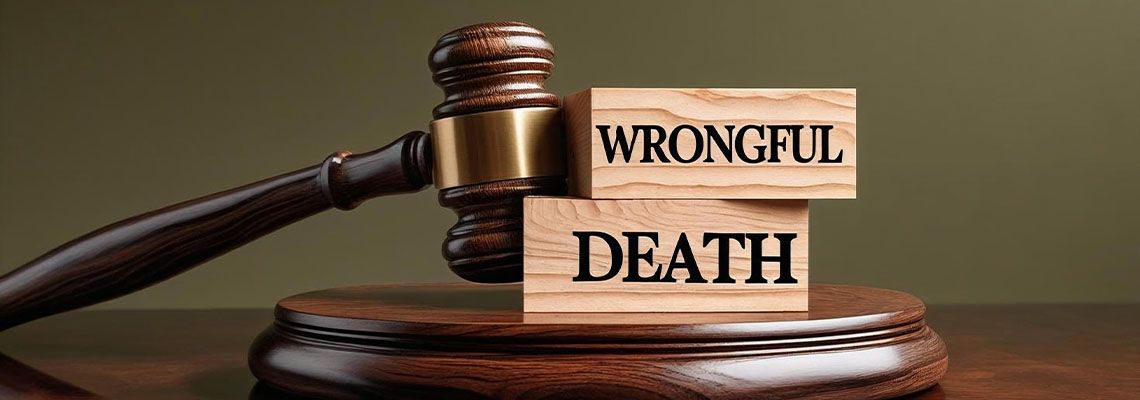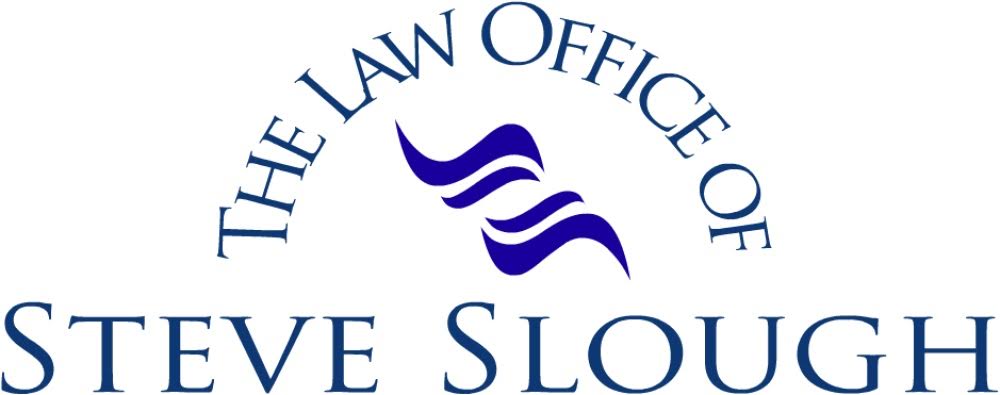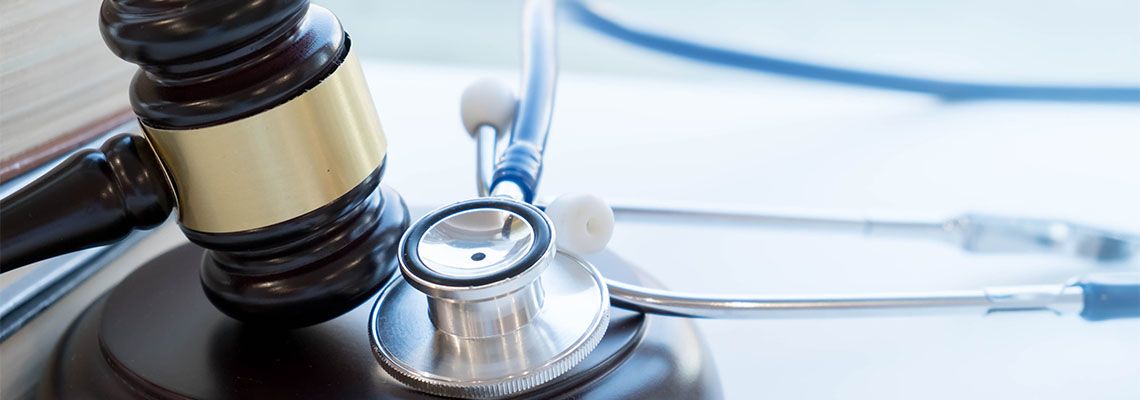If you suspect that your loved one isn’t receiving proper care in a nursing home or care home facility, it's common to experience significant stress, worry, and uncertainty. Unfortunately, nursing home negligence does occur, and it can take many forms, including physical harm, emotional abuse, improper medical treatment, medication errors, or substandard care.

Strategies for Pursuing a Wrongful Death Lawsuit
Losing a loved one is an experience no family should face, and when that loss results from another’s negligence, the emotional toll is often compounded by the legal hurdles ahead.
At The Law Office of Steve Slough in St. Louis, Missouri, we help families pursue justice through a wrongful death lawsuit.
We guide clients every step of the way, from assessing the case to pursuing maximum recovery. If you’ve lost someone due to another’s actions, we encourage you to reach out for a consultation so we can help you understand your options and the next steps. Contact us today to schedule a consultation.
How Wrongful Death Lawsuits Work
A wrongful death lawsuit allows surviving family members to hold parties accountable for a loved one’s death caused by negligence or intentional misconduct. These claims are separate from criminal proceedings, meaning a person may face civil liability even if criminal charges aren’t filed or don’t result in a conviction.
Eligibility to file: Immediate family members, such as spouses, children, or parents, typically have the right to file a wrongful death lawsuit.
Purpose of the lawsuit: Compensation may cover lost income, funeral expenses, pain and suffering, and loss of companionship.
Time limits: Statutes of limitations set deadlines for filing, which vary by state and type of case.
Understanding these elements helps families frame their expectations and make informed decisions about moving forward.
Identifying the Parties Involved
Before filing, it’s important to determine who may be liable and who can be named in the lawsuit.
Negligent individuals: Anyone whose actions directly contributed to the death may be responsible.
Employers and organizations: Companies can be held accountable if workplace safety standards were ignored or policies contributed to the fatal event.
Government entities: Certain municipal or state agencies may face liability in some circumstances, though filing claims against public entities may require additional procedural steps.
We work with families to map out all potential parties, which helps strengthen the case and identify possible avenues for recovery.
Gathering Critical Evidence
Evidence is the backbone of a wrongful death lawsuit. Collecting accurate and complete documentation early can significantly impact the outcome.
Medical records: These documents confirm the cause of death and outline injuries or medical mismanagement.
Accident reports: Police or workplace reports provide factual accounts of the incident.
Witness statements: Eyewitness testimony can clarify circumstances and assign responsibility.
Photographs and videos: Visual documentation of the scene, injuries, or equipment can reinforce claims.
Financial records: Pay stubs, tax returns, and insurance information help establish lost income and economic damages.
Every piece of evidence contributes to building a comprehensive picture, which we use to support claims and quantify damages effectively.
Calculating Damages
One of the most challenging aspects of a wrongful death lawsuit is determining the appropriate compensation.
Economic damages: Lost income, medical bills, funeral expenses, and property damage.
Non-economic damages: Pain and suffering, emotional distress, loss of companionship, and loss of guidance for children.
Punitive damages: In cases of extreme recklessness or intentional harm, courts may award punitive damages to punish the responsible party.
We assist families in evaluating both tangible and intangible losses to make sure their claims reflect the full scope of the impact.
Filing the Claim
Filing a wrongful death lawsuit involves careful preparation of legal documents and adherence to procedural rules.
Complaint preparation: This document outlines the basis of the claim, identifies defendants, and lists the damages being sought.
Filing with the court: Submitting the complaint officially begins the legal process and triggers the defendant’s response.
Serving the defendant: Defendants must be formally notified of the lawsuit, allowing them time to respond or negotiate.
We handle these steps to reduce errors and keep the process moving efficiently while keeping families informed.
Discovery and Information Exchange
After the lawsuit is filed, both sides engage in discovery, the phase where evidence is formally exchanged.
Interrogatories: Written questions that require detailed responses under oath.
Depositions: Oral testimonies recorded for use in court or settlement discussions.
Document requests: Parties may request contracts, reports, emails, or other documentation relevant to the case.
Expert witnesses: Professionals may be consulted to provide opinions on causes, damages, or industry standards.
Discovery allows us to verify facts, evaluate strengths and weaknesses, and develop strategies to strengthen the wrongful death lawsuit.
Settlement Discussions
Many wrongful death lawsuits are resolved through negotiation before reaching trial.
Assessing settlement offers: We review proposals to determine if they fairly compensate for economic and non-economic losses.
Negotiation strategies: Effective negotiation balances urgency with caution, seeking maximum recovery while avoiding unnecessary delays.
Mediation: In some cases, a neutral mediator facilitates discussions to help both sides reach an agreement.
While settlement can be quicker, families must weigh potential outcomes against pursuing a trial to achieve full justice.
Taking the Case to Trial
If negotiations fail, a wrongful death lawsuit may proceed to trial, where a judge or jury evaluates the evidence.
Presenting evidence: We organize and present medical records, witness testimony, and financial documents clearly and persuasively.
Cross-examination: Opposing witnesses may be questioned to challenge credibility or clarify statements.
Closing arguments: This final stage summarizes the case and highlights key points for the jury or judge to consider.
Trials provide an opportunity to hold parties accountable when settlements don’t meet expectations, though they may take longer and require careful preparation.
Post-Trial Considerations
Even after a verdict, families may face additional steps.
Appeals: Either party may appeal if there are legal errors or disputes over the outcome.
Enforcement of judgment: Securing awarded damages may involve negotiating payment plans or filing liens.
Continued support: We stay available to answer questions and address concerns throughout the post-trial period.
These steps help families move forward while making sure the legal decisions are properly executed.
Supporting Families Through the Process
We understand that pursuing a wrongful death lawsuit is emotionally taxing. We focus on communication, empathy, and practical guidance.
Regular updates: Families receive clear explanations of every step in the case.
Resource connections: Guidance may include referrals to grief counselors or financial advisors.
Strategic planning: Each decision is made with the goal of achieving meaningful recovery and peace of mind.
Supporting families beyond legal strategy is central to our approach, because we know that the emotional toll of losing a loved one often weighs as heavily as the legal challenges. We provide compassionate guidance throughout the entire process, offering clear communication, answering questions promptly, and connecting families with additional resources such as grief counseling or financial advice.
Contact Us Today
Don’t face this alone—losing a loved one is overwhelming, and dealing with the legal process on top of grief can be exhausting. Let an experienced accident attorney stand by your side to guide you through every step of your wrongful death lawsuit, handle the complicated legal details, and help you pursue the resolution and peace of mind your family truly deserves.
We’re ready to help families in St. Louis County and St. Charles County, Missouri, as well as St. Clair County and Madison County, Illinois, pursue justice through a wrongful death lawsuit. We’ll review the circumstances surrounding your loved one’s passing, explain potential recovery options, and guide you through every step of the process. Contact The Law Office of Steve Slough today.
RECENT POSTS
When a product fails to perform safely or as intended, the consequences can be devastating. Victims may face serious injuries, permanent disabilities, or overwhelming financial losses, and defective product claims often involve detailed technical, scientific, and medical details that go far beyond ordinary knowledge.
Medical malpractice can be one of the most stressful and emotional experiences a person faces. When you or a loved one suffers harm due to a medical professional's mistake, the emotional and financial impact can be overwhelming. Filing a medical malpractice claim requires careful preparation and attention to detail.




